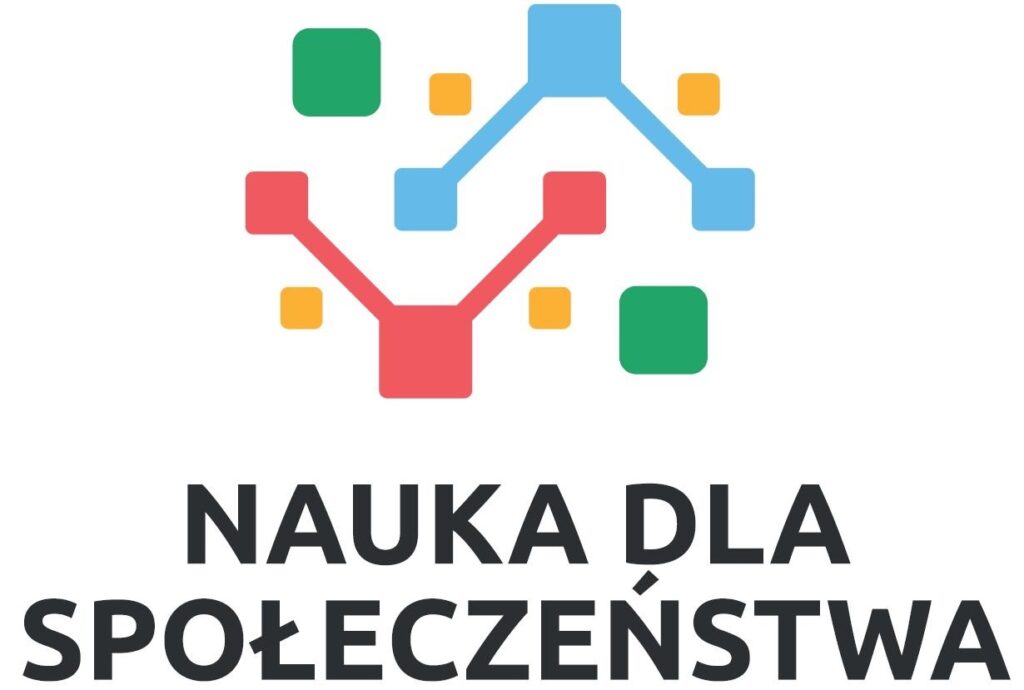Polish Digital Resilience Agenda 2040 - The Strategic Model of Digitalization Antinomy Preparation


The project is financed by funds from the state budget awarded by the Minister of Education and Science under the Science for Society II Programme.
Co-financing PLN 1 467 000
Total value PLN 1 467 000
Introduction
Modernity is characterized by changeability, uncertainty, complexity, and ambiguity. These features of the present day, called VUCA (which is an acronym for volatility, uncertainty, complexity and ambiguity), determine the way new strategies of both countries and business organizations are formulated. In response to the multidirectional changes in many areas characterizing our reality, it has become common to turn towards scenario methods, during the preparation of which new potential options are highlighted, for which it is worth preparing every organization.
Automation and digitization leave their mark on many areas and translate into the occurrence of unprecedented phenomena in the social and economic dimensions. Automation and digitization of production and services should be treated as development trends that bring with them many efficiency and efficiency phenomena. However, unprecedented phenomena with a high degree of uncertainty are the impact of these processes on important spheres of life, such as science and education, health or energy issues. The long-term directions of digital technology development also remain an area of great uncertainty.According to prepared forecasts (not for highly developed countries belonging to the OECD), it is estimated that on average 57% of all jobs may cease to exist as a result of automation. In Poland, it is estimated that this process will affect an average of 40% of all jobs. Forecasts also indicate that almost half (47%) of the professions known today will be replaced by the work of machines over the next 25 years. The data indicate that we are in the midst of a great, unprecedented revolution that only seemingly concerns the world of technology. In particular, the automation of services may cause significant changes in the structure of the labour market, which will entail a number of unpredictable social problems.
Automation and digitisation processes, due to their rational nature in terms of economic calculation, will be phenomena with a high degree of certainty and will be the main source of competitive advantage in the coming decades. In the opinion of many observers, as a consequence, these processes will contribute not only to the reduction of some traditional jobs, but also by reducing margins and added value, consequently they will lead to a reduction in the competitiveness of the sector of small and medium-sized enterprises. The market spaces and business models freed up in this way will become the domain of corporations.

Scenarios of the future as a method of strategic management
The first information on the use of predictive methods dates back to antiquity. Nevertheless, this kind of methodology began to be used in a systematic way in the nineteenth-twentieth century military structures. From the army, scenario planning went to energy corporations, effectively preparing some of them for changes and crises, eliminating investment risks and optimizing the portfolios of research and implementation projects. The beginning of the twentieth century was a triumph and automation of this type of methods, which had previously been characterized by complexity, labor intensity and significant costs.
The implementation of the results of this type of planning methods and tools also required determination and stability on the part of the management boards of large economic organisms. Parallel to the popularization of this type of techniques, specialized consulting companies offering this type of advanced analytical services have appeared. Recent years have seen the systematic establishment of scenario analyses in the scientific community as well as in public administration. In many countries, there are concepts of building a new interdisciplinary scientific field related to knowledge management called future study.
Scenario methodology is not a prediction of the future. To put it simply, this method consists in separating uncertain phenomena from trends. Uncertainties with their several variants of the final state become the basis for the diversification of the future. In this way, a set of "parallel worlds" is created. As a result of the heristic process, options and phenomena are revealed, which so far neglected may play a key role in the variants of future reality. If these types of phenomena are repeated in more scenarios, it is very likely that you should prepare for them.

Objectives of the Project
The project aims to prepare Polish institutions for the anticipated changes by recommending in a systemic way a set of actions and initiatives to mitigate the potential negative – social and economic – effects of automation and digitization processes. On the other hand, the role of the strategic initiative will be to treat the processes in question as an opportunity to generate new competitive advantages for the economy and to give real subjectivity to domestic institutions. Representatives of selected fields of science as well as leading Polish economic entities will be invited to the project in the form of experts; The resulting cooperation network will be an additional value of the project. The title agenda will be created as a result of the integration of five studies on in-depth areas, the selection of which was made through an analysis of their potential impact on the entire socio-economic system.
In the discussed project, the analysis described above will be carried out for five in-depth areas. These areas are: the development of the Internet and IT technologies and their impact on other areas of life, energy, medicine and social care, as well as science and education. The role of the analyses (in the case of the four indicated areas) will be to determine what phenomena will take place in these areas as a result of automation and digitization (and therefore what phenomena will be worth preparing for). These analyses will allow for the development of individual strategies for each of the selected in-depth areas. "The area of development processes in the field of the Internet and IT technology" will be a search for key variants of development in this area.
The integration of the resulting reports and the identification of recurring scenario options and phenomena will allow for the development of the final product of the project, i.e. the Digital Resilience Agenda until 2040. By it, we mean a set of various types of initiatives, project ideas that prepare both political leaders and the entire society for the processes of inevitable changes related to the dynamics of digitization, and on the other hand, building a domestic alternative and flexibility, as well as spaces and ways of using Polish development potential.
Stages of the project in methodological terms:
- Proprietary research, data collection and processing
The key element of this phase will be the preparation of a map of available and current knowledge in the field of digital development perspectives as well as in the four other in-depth areas. Based on the knowledge map, own research and a process of searching for found material will be designed. Parallel to this process, a database of experts invited to participate in further work will be built. A research team will also be assembled. - Construction of trend and uncertainty maps and their integration
Based on the empirical material collected, trend and uncertainty maps will be prepared as part of the scenario building process. It was necessary to separate this stage because of the need for analyses in five in-depth areas. The working method adopted at this stage will save considerable time and resources in the subsequent stages of the work (as the early identification of common uncertainties will allow the integration and standardisation of part of the scenarios already at an early stage). Otherwise, the process would have to be repeated five times with little efficiency and no possibility for standardisation. At this stage, the building of more sustainable expert teams for the in-depth research areas will also start. Work at this stage will be carried out in the form of workshops and on-line workshops. - Construction of development scenarios for the five deepened areas
This - the key stage for the project - will also be carried out in the form of expert workshops, consultations and expert opinions using specialised planning software. However, this does not reduce the labour intensity of the work, as the data collected at the earlier stage will have to be aggregated in terms of potential end states, which, given the complexity of the analyses carried out in this project, is an intellectual challenge and requires a number of consultations also with external experts. - Synthesis of scenarios from deepened areas and construction of a collective strategic agenda
The synthesis of scenarios and key detected phenomena is not their sum, but a new quality, in which a kind of "meta-scenarios" are constructed, integrating detected phenomena with equal intensity, which results from the postulate of "overlapping" phenomena and processes treated separately. Variations in the occurrence of given phenomena in individual scenarios of deepened areas will generate the phenomenon of "meta-certainties", which will be the basis for further strategic inquiries and analyses. On this basis, proportions of strategic objectives, priorities, actions and phenomena will be developed. Based on the work of this phase, a preliminary version of the Digital Resilience Agenda will be developed. This kind of unprecedented approach requires a broader methodological reflection. Work of this type will also be carried out during this phase of the project. At this point, it is worth mentioning the assumed time horizon of the project, which is the year 2040. As it seems, this is an optimal perspective for determining the occurrence of the discussed phenomena and preparing effective corrective actions or strengthening the development processes.
Consultations and dissemination of research results
At this stage, the synthetic results of the work will be presented to a wide range of experts and stakeholders in order to collect opinions, criticism and polemics influencing the final shape of the prepared material. At this stage, the resulting materials will also be reviewed and published. Debates on the resulting material will contribute to the popularization of scenario planning in scientific communities, thanks to which it will be possible to commonly use this method in scientific activity, among others as a support for the process of selecting directions and topics of research work.
The project – due to its interdisciplinary nature – is a challenge in terms of organization and logistics. The need to involve many experts from various fields and the construction of an efficient information exchange system is a particular challenge for the organizers.
The implementation of this project with a relatively small budget will be possible thanks to the spread of research and analytical work and activities over time and thanks to the use of specialized software, the license costs of which are provided for in the project. This does not change the fact that the software in question only guarantees support for systemic analytical and intellectual processes resulting from the research methodology itself.
Project perspecitivs
This project, if successful, is the initial stage of the process of building a strategic management system in the area of digitization using predictive tools. The issues raised in it may require further in-depth analytical work carried out as part of the cooperation network of various substantive institutions. Building this kind of cooperation network as part of an integrated process of managing the future is an additional, extremely valuable advantage of this project. The agenda itself can also affect the standardization of planning processes by creating a decentralized system for managing knowledge about the future not only in the area of broadly understood IT, but also in all other areas of activity, with particular emphasis on those in which the development of a competitiveness policy is indispensable.

